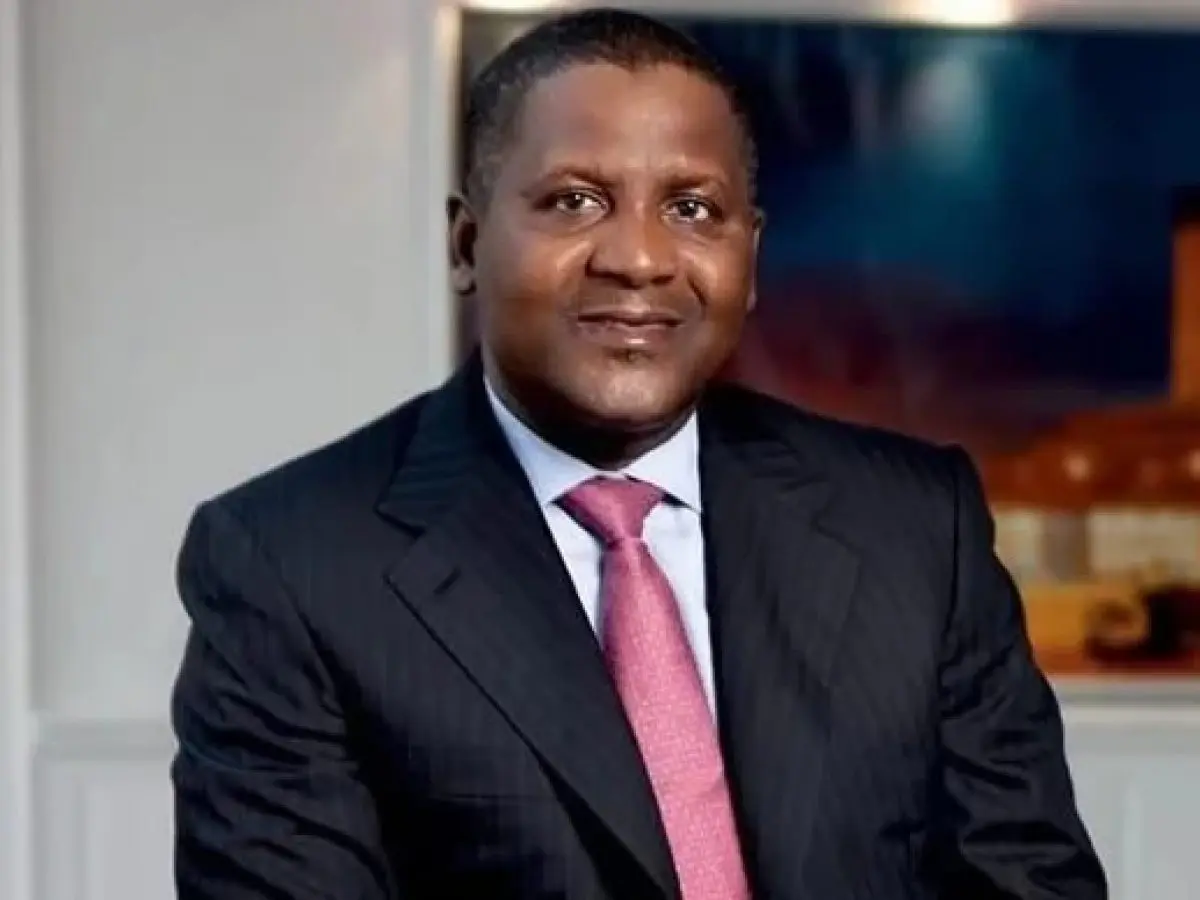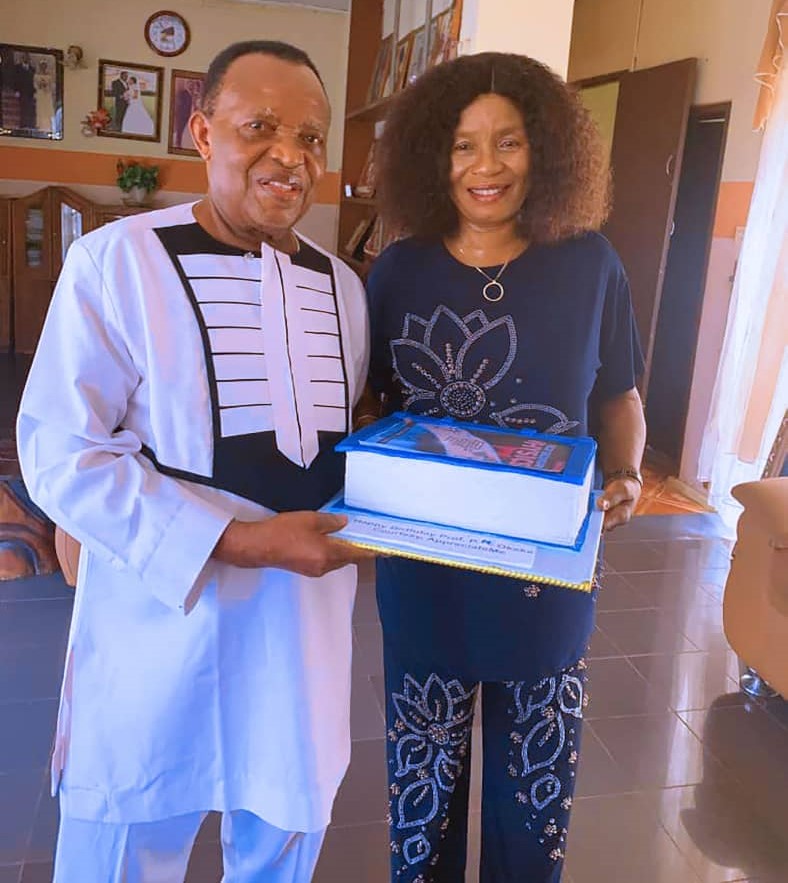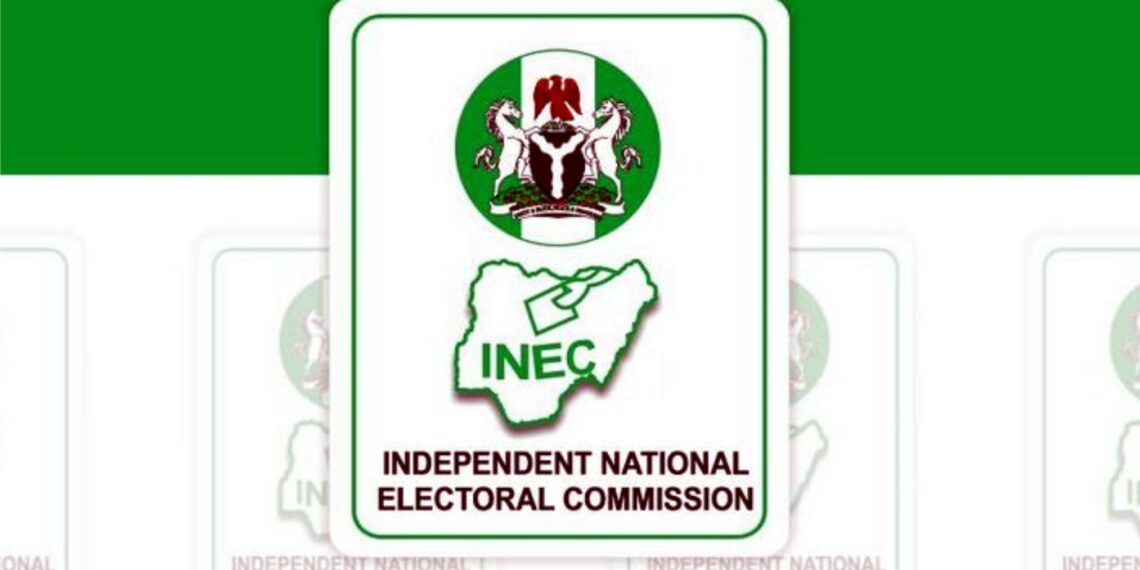Shocking things Ghana’s Auditor-General said about oil and gas
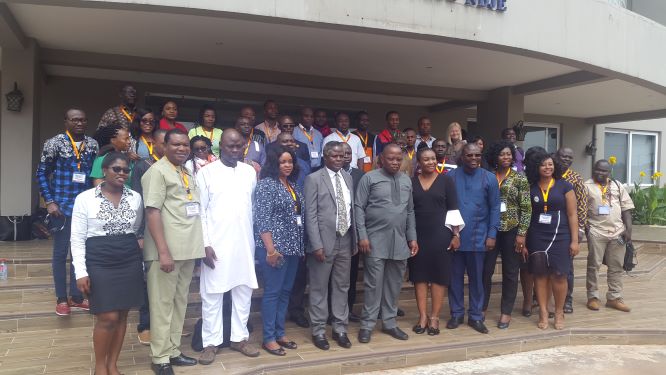
In the last decade I’ve been haunted by an opaque expression: ‘the oil and gas sector is opaque.’ What is opaque? What is oil and gas? The simple definition of opaque is “not transparent,” and it has synonyms like “cloudy,” “blurred,” “dirty,” “muddy,” “hazy,” etc. Is the word, opaque, not a synonym of the phrase ‘oil and gas?’ Oil and gas are hidden deep below the surface of the earth such that we wonder how ‘the white man’ knew that such wealth was in that closed world. And when they are extracted, are they not muddy, hazy, blurred, cloudy and even dirty?
In discussions, we actually scratch the surface of oil and gas issues because the substance is hidden in impenetrable inaccessible depths. Therefore, I jumped at an opportunity to fly to Accra to attend a summer school on oil, gas and mining governance, beginning from Monday, August 27 and ending on Saturday, September 7, 2018. On the first day of the conference, still standing on the surface of the two-week deep event, I’ve received five deep insights. They are below:
‘Africa is a rich continent but very poor in reality’
It sounds like a familiar, sad, and hackneyed expression? But it sounded different because it came from an unexpected quarters – Mr Daniel Domelevo, the Auditor-General of Ghana Audit Service. It was part of his lamentation of the ‘resource curse’ of Africa. He explains it thus: “the people of Africa sit on oil resources but we don’t have use of them. We’re educated but our knowledge is not helping us; we use our education to exploit our people, not to develop ourselves. Africa has laws but we don’t do the right things. We have more PhDs in our services than anywhere, but they have not impacted on our society…’ In the same way, we have wealth that has not impacted on the African society. Then, he moves to the crux of the matter…
‘Corruption is the bane of Africa’
The Auditor-General was in low spirit when he made the above statement. Of course, he’s in a position to know. And corruption is perpetrated because of one attitude: ‘In Africa some have good intentions but they are not bold to speak against wrongdoing that is going on in the continent.’ Daniel actually added that in both the upstream and downstream sectors of the oil and gas industry, there are corruption challenges, which can be tackled, not by laws, policies, rules, but mainly by our courage to speak up and act against corruption.
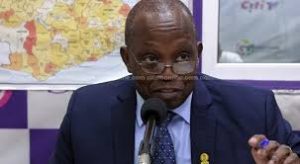
Nkrumah was actually a prophet. Hear what he said…
Usually, I oppose those who drag us back to the past when they intend to solve today’s problems. But on Monday, I withdrew that attitude when Daniel spoke about the late Kwame Nkrumah’s black prophecy about Africa. The Auditor-General paraphrased Nkrumah as saying, ‘neo-colonialism would be worse than imperialism and colonialism because under the former, neo-colonialists would ‘use remote control to cause you to slap yourself. Yes, you’re made to slap yourself, but you can’t do anything about it…” How relevant is this statement? Africa owns the natural resources, but ‘we don’t get a fair share of the cake because we don’t know the size of the cake…’ So we have the resources, but others, not Africans, benefit from them.
‘Africa has handed over its economy to Britain’
I oppose those who blame Britain for Africa’s current predicaments. But, again, I swallowed my opposition when Daniel quoted an article written by a British journalist and author Mark Curtis entitled ‘Britain’s New Africa Empire,’ published in July 2016 and republished severally. In it, the development enthusiast expounded a thesis that Britain controls more of Africa’s resources more than 19th Century colonialists did. And Curtis supported his argument with facts and figures. Here is a brutal quote from the piece: “Companies listed on the London Stock Exchange control over $1trillion worth of Africa’s resources in just five commodities – oil, gold, diamonds, coal and platinum. My research for the NGO, War on Want, which has just been published, reveals that 101 companies, most of them British, control $305billion worth of platinum, $276billion worth of oil and $216billion worth of coal at current market prices. The ‘Scramble for Africa’ is proceeding apace, with the result that African governments have largely handed over their treasure.” The bottom line of his argument is that African governments have sold their birth-right for a plate of porridge in order to satisfy a momentary pleasure – cars, houses, wine, and women.
Why is Naija ‘carrying last’?
A brief look at a report on Natural Resources Governance Index which we reviewed on the first day at this Summer School is frustrating me. In terms of value realisation from our oil resources, revenue management, and provision of enabling environment, Nigeria performs worse than several poorer countries in sub-Saharan Africa. Yet, we are the giant of Africa. The table below, which I prepared from the report, tells you why I’m unhappy.
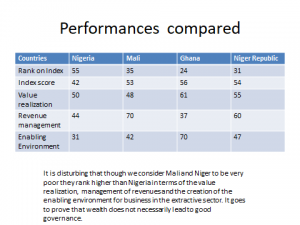
I will provide a daily update that will provide an insight into the sector in the next two weeks. Cheer up!
Neo-colonialists would ‘use remote control to cause you to slap yourself.
The Insight Report
Nigeria Coverage

